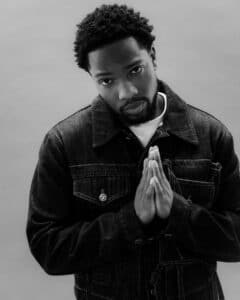
In 2014, Burkina Faso, a West African country, witnessed a significant political upheaval when Blaise Compaoré, who had been in power for 27 years, was forced to step down as president. This followed days of massive protests and a popular uprising against his attempt to extend his rule through a constitutional amendment.
After Compaoré’s ousting, the country entered a period of political transition and uncertainty. A transitional government was established to steer the nation towards stability and democratic governance. However, this period was marked by ongoing protests as various factions struggled for influence and power.
In 2015, Burkina Faso held presidential and parliamentary elections. These elections were a crucial milestone in the country’s path towards stability and democracy. Roch Marc Christian Kaboré, a former prime minister and the leader of the People’s Movement for Progress (MPP), emerged as the winner and was elected as the new president.
Upon assuming office, President Kaboré faced the immense challenge of rebuilding the nation and addressing the deep-rooted issues that had contributed to the previous unrest. He pledged to prioritize security, economic development, and social reforms to improve the lives of Burkina Faso’s citizens.
However, despite his promises, the country continued to face persistent challenges. Armed extremist groups, particularly in the northern and eastern regions, intensified their activities, leading to a deteriorating security situation. The violence and insurgency posed a significant threat to civilians and hindered development efforts.
In January 2022, growing discontent with President Kaboré’s leadership and the government’s handling of security and economic issues culminated in a military coup. The military took control of the country, and Kaboré was forced to step down.
The coup further complicated Burkina Faso’s trajectory, raising concerns about the country’s political stability and governance. The international community closely monitored the situation, expressing worries about the potential for further unrest and violence.
In early 2022, Burkina Faso experienced a military coup led by Lieutenant Colonel Paul-Henri Sandaogo Damiba, which was met with some initial public support. The coup was fueled by widespread frustration with President Kaboré’s inability to address the escalating extremist violence in the country effectively. However, this sense of euphoria quickly dissipated as the situation took a dramatic turn.
In September 2022, a second military coup occurred, and Ibrahim Traoré, an army captain, ousted Damiba. Traoré’s takeover resulted in the suspension of the constitution and the dissolution of the transitional government that had been established earlier. These actions further exacerbated the political turmoil and uncertainty in Burkina Faso.
After the coup in 2022, Ibrahim Traore assumed the position of the supreme head of state and the supreme head of the armed forces in Burkina Faso. Under his leadership, in 2023, the Traore government decided to expel French forces that were previously assisting in the fight against Jihadist insurgency in the country.
Traore has advocated for the idea of uniting Mali and Guinea, and if an agreement is reached, it would create the largest territory ruled by a military junta. This move signifies his ambition to consolidate power and possibly address regional security challenges.
During a recent visit to Russia, where Traore met with President Vladimir Putin, he expressed discontent with the persistent poverty in Africa despite the continent’s abundant natural resources. He shared a vision of making Africa a superpower continent, harnessing its resources for the benefit of its people.
In addition, Traore is said to draw inspiration from Thomas Sankara, a prominent figure in Burkina Faso’s history, who was known for his dedication to his country and Africa as a whole. Sankara’s legacy has left a lasting impact on Traore, influencing his approach to leadership and governance.







